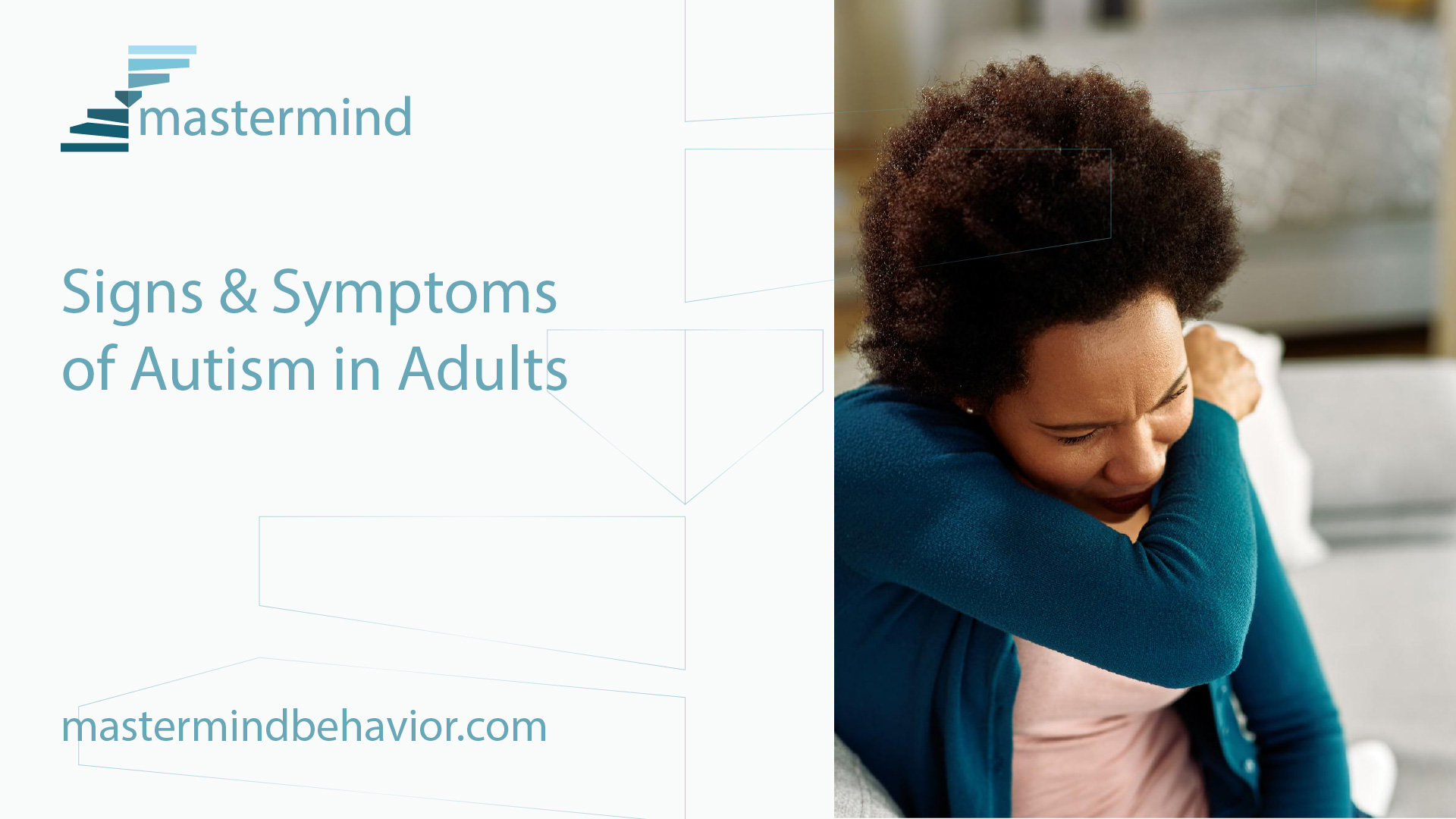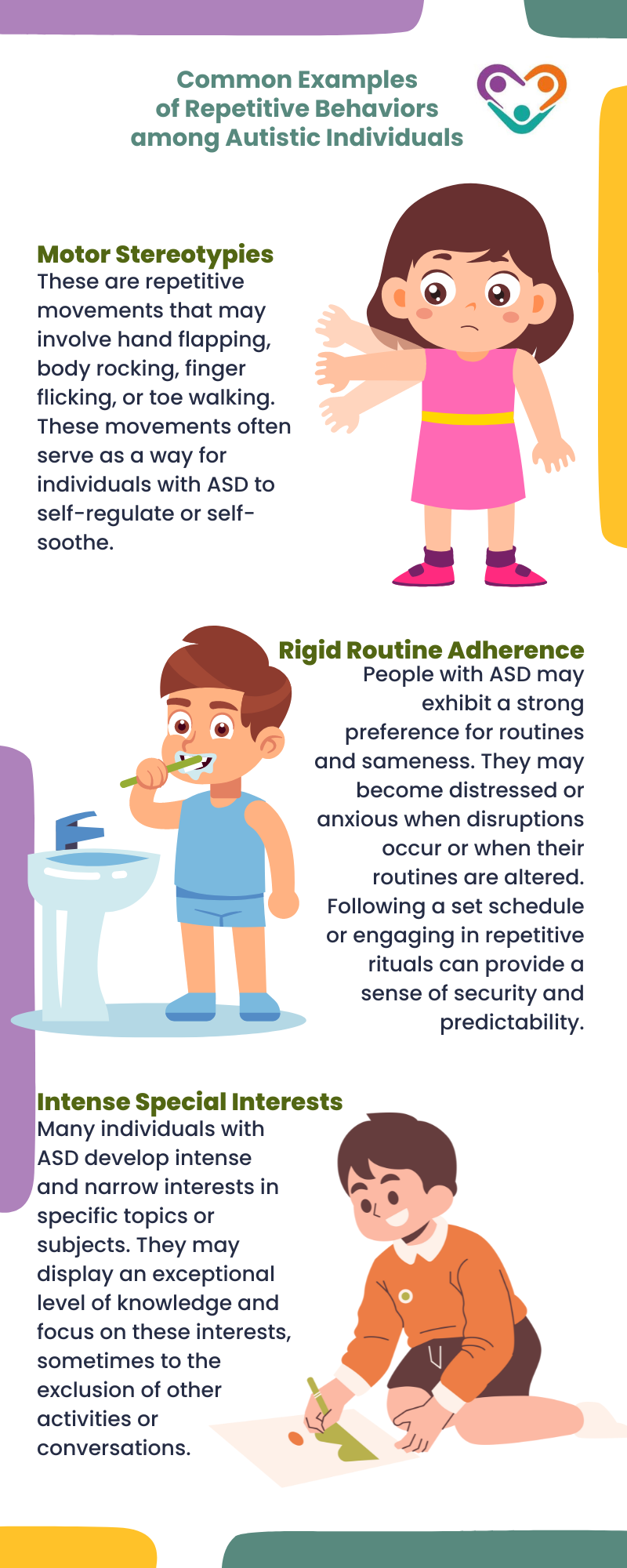The role of structured routines help children with autism—according to an Autism Therapist
The role of structured routines help children with autism—according to an Autism Therapist
Blog Article
Secret Indications and Signs And Symptoms to Recognize in Individuals With Behavioral Autism
When you run into somebody with behavior autism, identifying essential signs and signs and symptoms is vital. Additionally, sensory sensitivities can lead to overwhelming experiences.
Obstacles in Social Interactions
When you interact with a person on the autism spectrum, you may observe they fight with social signs and interaction. These difficulties can make social communications feel overwhelming for them. You might see them preventing eye call or standing as well close or also away during discussions, which can create misconceptions. They may not notice body movement or facial expressions, making it harder for them to assess how others are really feeling.
Additionally, you might locate that they like regimens and acquainted settings, which can restrict their willingness to involve in new social scenarios. They may talk regarding their passions in fantastic detail without seeing if you're interested when they do involve. This can cause prejudiced discussions that leave you really feeling detached. Comprehending these difficulties can aid you approach interactions with empathy and perseverance, fostering a more comfortable atmosphere for both of you.
Difficulty With Verbal and Non-Verbal Communication

Non-verbal communication can be much more tough. You might see an absence of eye contact or minimal use gestures, which can make communications really feel awkward. Faces might not constantly align with the conversation, causing confusion about their sensations. Recognizing these indications is important, as it assists you much better assistance and engage with individuals on the autism range. By comprehending their interaction difficulties, you can cultivate much more purposeful links and offer an extra helpful setting.
Repeated Habits and Regimens
Communication challenges often go along with other signs of autism, such as recurring behaviors and a strong preference for routines. You might discover that individuals with autism frequently participate in particular, repeated activities, like hand-flapping, rocking, or repeating expressions. These habits can supply comfort and a feeling of control in an often overwhelming globe.
Regimens are just as essential; numerous individuals grow when they comply with an organized routine. You might find that modifications to these regimens can lead to considerable distress. As an example, if they have a daily ritual of eating breakfast at a certain time or following a specific course to school, any type of disruption can trigger anxiety.
Recognizing these patterns assists you recognize their habits and offer assistance. By suiting their requirement for routine and allowing repeated actions, you can develop a much more comfortable environment that reduces their difficulties.
Sensory Level Of Sensitivities

Typical Sensory Triggers
Sensory level of sensitivities can considerably influence life for people with autism, as certain stimulations typically trigger overwhelming reactions. Typical sensory triggers consist of loud noises, bright lights, and solid smells. You could observe that sudden noises, like alarm systems or alarms, cause anxiousness or distress. Fluorescent illumination in shops can really feel uneasy and rough. Appearances can additionally play a significant role; rough materials or particular food structures might be excruciating for you. In addition, crowded locations can bewilder your detects, making it tough to loosen up or concentrate. Comprehending these triggers can aid you handle your setting much better. By being aware of what affects you, navigate to this website you can take steps to minimize pain and improve your everyday experiences.
Behavioral Responses Described
Recognizing your behavior actions to sensory sensitivities is necessary, as they usually disclose exactly how you communicate with the world. You may notice that certain audios, lights, or appearances overwhelm you, resulting in stress and anxiety or discomfort. When confronted with these stimulations, you might withdraw, cover your ears, or perhaps respond aggressively. These responses aren't simply traits; they're your way of dealing with overstimulation. You may also discover on your own looking for details sensory experiences, like deep pressure or silent settings, to aid ground yourself. Identifying these patterns helps you understand your requirements better and can lead just how you communicate them to others. By acknowledging your sensory sensitivities, you can work towards developing a setting that feels extra comfy and manageable for you.
Coping Strategies Introduction
Recognizing your sensory sensitivities is simply the primary step; now it's time to check out coping approaches that can help you manage those experiences successfully. Beginning by creating a sensory toolkit tailored to your requirements. This can consist of noise-canceling earphones, fidget toys, or calming fragrances. Establishing a structured routine can likewise supply predictability, lowering anxiety around sensory overload. Take breaks in a quiet space to regroup when you really feel overloaded. Exercising mindfulness methods such as deep breathing can assist ground you in the moment. In addition, connect your demands with those around you; having encouraging buddies and family can make a huge distinction. Remember, locating what functions ideal for you might require time, so be patient and open to trying new methods.
Restricted Interests and Emphasis
While lots of individuals develop a variety of rate of interests, those with autism typically show limited rate of interests and an intense emphasis on particular topics. You may see that somebody with autism can spend hours diving right into their preferred subject, whether it's a certain kind of train, a particular movie, or a clinical concept. This intense emphasis isn't just a leisure activity; it can become a main part of their identification and social interactions.
You might find that conversations rotate around these rate of interests, and they might struggle to engage in wider subjects. By understanding and acknowledging these limited interests, you can cultivate a helpful environment where they feel valued and comprehended, permitting for more meaningful links and communications.
Emotional Policy Troubles
Individuals with autism usually encounter obstacles in emotional regulation, which can be affected by their extreme emphasis on certain interests. You might notice that when an individual is deeply taken part in a recommended activity, they can experience strong emotions, whether excitement or disappointment. When things do not go as prepared., this strength sometimes makes it difficult for them to shift gears or manage their sensations - Aba Therapist.

Variability in Developing Landmarks
When it comes to developmental landmarks, you'll notice that individuals with autism commonly reveal a vast array of variability. Some may strike landmarks on time, while others could lag behind or progress at a different speed. link For instance, you might see a child stand out in language abilities yet battle with social communications. This disparity can be confusing, as standard standards do not always use.
It's crucial to identify that each individual's journey is distinct. Observing these patterns can assist you understand their toughness and requires better.
Frequently Asked Inquiries
How Is Autism Detected in Children and Grownups?
To identify autism in children and grownups, professionals assess behavior, interaction abilities, and social interactions. They commonly utilize standard tests, meetings, and observations to establish if a private meets the standards for autism spectrum problem.
Are There Various Kinds of Autism Range Disorders?
Yes, there are different kinds of autism spectrum conditions, including Asperger's syndrome and prevalent developmental disorder-not or else specified. Each type differs in extent and characteristics, so comprehending these differences can assist you far better support people with autism.
What Therapies Are Reliable for Individuals With Autism?
When thinking about reliable therapies for people with autism, you'll find choices like Applied Actions Analysis, speech therapy, and work-related treatment. Each approach can assist boost interaction, social skills, and everyday operating customized to private requirements.
Can People With Autism Lead Independent Lives?
Yes, individuals with autism can lead independent lives. With the best support, skills training, and sources, you can aid them create self-sufficiency, manage daily tasks, and grow in numerous atmospheres, cultivating their self-reliance.
Exactly How Can Family Members Support Liked Ones With Autism?
You can support your liked ones with autism by developing an organized setting, urging their interests, practicing patience, fostering communication, and promoting social skills. Celebrate their achievements, despite how small, and build address a helpful area.
Although several people on the autism range can understand and utilize language, they often face substantial challenges with both non-verbal and verbal communication. Recognizing these signs is vital, as it aids you much better support and engage with individuals on the autism range. You may observe that individuals with autism typically engage in specific, repetitive activities, like hand-flapping, shaking, or duplicating phrases.Sensory sensitivities can significantly impact everyday life for people with autism, as particular stimuli typically set off overwhelming reactions.When it comes to developmental milestones, you'll see that people with autism typically show a wide range of irregularity.
Report this page